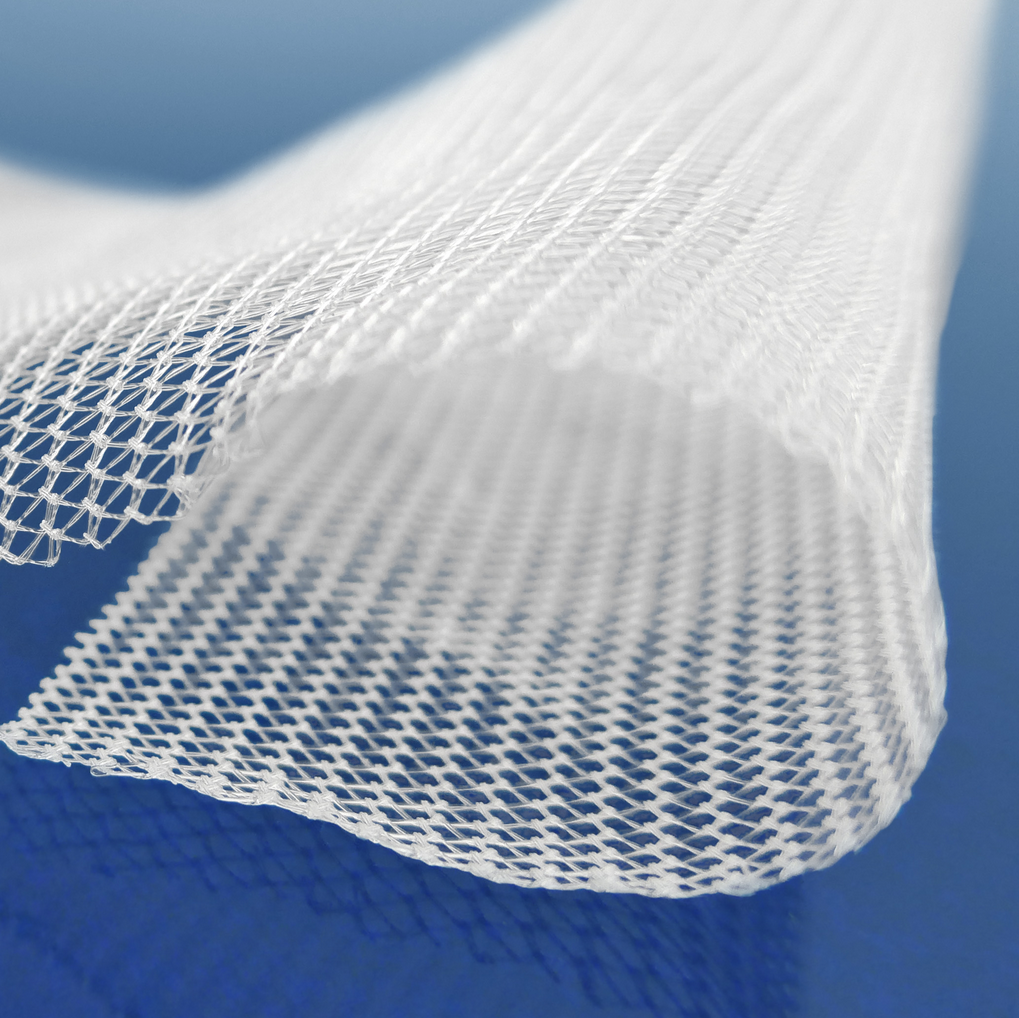Davol is a subsidiary of global medical device manufacturer, C.R. Bard, and is the primary brand manufacturer for C.R. Bard’s line of polypropylene surgical mesh devices. Founded in the 1870s as the Perkins Manufacturing Company, of Providence, Rhode Island, it was later renamed the Davol Rubber Company. Davol specialized in the production of rubber surgical devices and catheters and was acquired by C.R. Bard in 1980. Bard itself was acquired by medical device behemoth, Becton Dickinson in 2017 for $24 billion.
Together, Davol and C.R. Bard dominate up to 70% of the U.S. market for hernia mesh implants and have staked an aggressive marketing strategy on the use of polypropylene mesh for the range of products they have offered for many years. Nonetheless, polypropylene in the synthetic mesh has a well-documented history of post-operative complications. In particular, scientific evidence and studies have shown that polypropylene material is “biologically incompatible” with human tissue and may promote an immune response in some implantees resulting in contraction, adhesions, and migration around the abdomen. As a consequence, thousands of patients implanted with Davol/Bard polypropylene mesh products have come forward and are now suing the firms claiming that their products were defective, that the companies knew they were defective, and that they have caused devastating injuries and suffering.
Background on Davol/Bard and Polypropylene
The use of both organic and synthetic materials to repair hernias is a widely understood and adopted procedure in the United States and has been around since the late 19th century. In the United States alone, there are more than 300,000 mesh implant procedures conducted on an annual basis.
In recent years, device manufacturers have pursued a range of mesh products that incorporate a resin-based material known as polypropylene into their designs. The use of polypropylene in the implantable mesh is not without risks to the patient. Even though mesh manufacturers commonly assert that polypropylene is “inert”, the fundamental polymer in polypropylene undergoes chemical alteration following implantation in certain locations within the human body. Research into this alteration suggests that the synthetic material can degrade, crack, and shrink/contract causing infection, chronic inflammation, and other painful medical issues. These findings lead many to conclude that despite the manufacturer’s assurances, polypropylene is not “inert” when it is implanted in a human body.
C.R. Bard subsidiary, Davol, released its Composix Hernia Patch in 1997 which ushered in the firm’s contemporary line of the firm’s synthetic mesh devices made with layered polypropylene. Since that time, Davol’s list of synthetic mesh devices has grown to include (but not limited to):
- Composix Kugel Mesh
- Composix E/X Mesh
- Composix L/P Mesh
- Perfix Plug
- 3DMax
- Sepramesh IP Composite
- Ventralex Hernia Patch
- Ventralex ST Hernia Patch
- Ventrio Hernia Patch
- Ventrio ST Hernia Patch
- Visilex
- Marlex
- Spermatex
Issues and Complications from Polypropylene
Polypropylene mesh is commonly associated with chronic postoperative pain. It is believed that the mesh sometimes stiffens dramatically once it is implanted due to oxidative stress. Other issues and complications may include bleeding and infection, tissue adhesion, migration, bowel obstruction, and in some cases, erectile dysfunction.
Problems associated with the use of polypropylene in synthetic mesh devices are not new, either to the patients suffering from them or to manufacturers. According to evidence obtained during court proceedings in the United States, it emerged that Davol/C.R. Bard was told by the manufacturer of the resin they used that it was inappropriate for implantation in the human body.
Notably, on the Materials Safety Data Sheet (MSDS) for Marlex polypropylene published by the resin manufacturer Chevron Phillips Chemical Company, it states clearly: “Do not use this [manufacturer’s] material in medical applications involving permanent implantation in the human body or permanent contact with internal body fluids or tissues.” Beyond this admonition, a Vice President at C.R. Bard admitted in court that he received a call in 1997 from an executive at Chevron Phillips that, “…they (Chevron) were concerned about litigation and the association with the Marlex name with a permanent medical implant.”
Finally, in 2004, Chevron Phillips formally warned Davol/C.R. Bard and others that Marlex was “not for human implantation” and told Davol/C.R. Bard that they did not want to sell them Marlex at any price. Despite these warnings from Marlex’ own manufacturer, Davol/C.R. Bard continued using polypropylene in mesh devices for years afterward, allegedly going to great lengths to secure the resin while concealing its end purpose from suppliers.
Composix Kugel Patch Recall and Lawsuits
The Composix Kugel Patch was a mesh device marketed widely and aggressively by Davol/C.R. Bard in the 1990s through the mid-2000s. It was distinguished by a “memory recoil ring” that allowed the mesh to be inserted into the body through a small incision then unfold and lay flat. Unfortunately, the Kugel’s signature feature also demonstrated a propensity for breaking in the abdomen, causing bowel perforations and chronic intestinal fistulas. Between 2005 and 2007, the Kugel Patch was subject to a number of recalls, culminating with a Class I recall – the most serious type of recall mandated by the U.S. Food and Drug Administration (FDA). In the end, Davol/C.R. Bard had recalled nearly 140,000 units and paid $184 million to settle 2,600 lawsuits in 2017.
Current Davol/C.R. Bard Mesh Lawsuits
Davol/C.R. Bard are currently defendants in large multidistrict litigation (MDL) spanning a range of polypropylene devices in federal court in Ohio (MDL-2846). The first bellwether cases in this MDL are expected to open for trial late in 2020.
Sources Cited (14)
1) “MAUDE Adverse Event Report: DAVOL INC., SUB. C.R. BARD, INC. KUGEL PATCH” https://www.accessdata.fda.gov/scripts/cdrh/cfdocs/cfmaude/Detail.CFM?MDRFOI__ID=1749278
2) “Class 1 Device Recall Davol Composix Kugel Hernia Patch” https://www.accessdata.fda.gov/scripts/cdrh/cfdocs/cfRES/res.cfm?id=49722
3) “Hansen v. Davol, Inc. and C.R. Bard” https://www.ohsd.uscourts.gov/multidistrict-litigation-2846
4) “Memos reveal mesh firms were warned 21 years ago that material should not be used on humans” https://www.sundaypost.com/fp/memos-reveal-mesh-firms-were-warned-21-years-ago-that-material-should-not-be-used-on-humans/
5) “Hernia Surgical Mesh Implants: Information for Patients” https://www.fda.gov/medical-devices/hernia-surgical-mesh-implants/hernia-surgical-mesh-implants-information-patients
6) “Gynecological mesh: The medical device that has 100,000 women suing” https://www.cbsnews.com/news/boston-scientific-gynecological-mesh-the-medical-device-that-has-100000-women-suing-2019-04-17/
7) “[Use of polypropylene mesh for incisional hernia repair]” https://pubmed.ncbi.nlm.nih.gov/16004221/
8) “Polyglactin/Polypropylene Mesh vs. Propylene Mesh: Is There a Need for Newer Prosthesis in Inguinal Hernia?” https://www.ncbi.nlm.nih.gov/pmc/articles/PMC3023108/
9) “Comparison of new biologic surgical mesh with polypropylene mesh in inguinal hernia repair” https://pubmed.ncbi.nlm.nih.gov/31142093/
10) “MAUDE Adverse Event Report: BARD DAVOL INC. BARD MESH MONOFILAMENT KNITTED POLYPROPYLENE, MESH SIZE 3″ X 6″” https://www.accessdata.fda.gov/scripts/cdrh/cfdocs/cfmaude/Detail.CFM?MDRFOI__ID=2048325&DEVICE_SEQUENCE_NO=2
11) “Physical structure and mechanical properties of knitted hernia mesh materials: A review” https://journals.sagepub.com/doi/abs/10.1177/1528083717690613?journalCode=jitc
12) “What is Polypropylene? The Plastic in Your Mesh” https://medtruth.com/articles/news/polypropylene-mesh/
13) “About Us: Davol/C.R. Bard” https://www.crbard.com/Davol/About-Us
14) “Post-Implantation Alterations of Polypropylene in the Human” https://www.researchgate.net/publication/224947996_Post-Implantation_Alterations_of_Polypropylene_in_the_Human#:~:text=Polypropylene%20in%20mesh%20form%20is,reactions%20after%20implantation%20in%20humans.&text=These%20alterations%20in%20the%20chemical,structural%20integrity%20through%20material%20embrittlement



